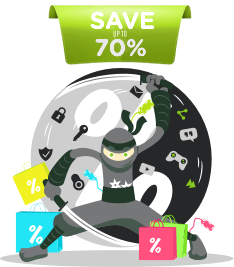Introduction
Do you ever wonder how much data your apps are collecting from you? It’s no secret that many apps collect data, but the extent to which they do it might surprise you. In this blog post, we will explore how much data apps collect and what they do with it. We will also discuss how you can protect your data and keep your privacy intact.
How much data do apps collect?
In recent years, there has been a lot of concern about how much data apps collect. Some people believe that apps are collecting too much data, while others believe that the amount of data collected is appropriate.
There are a variety of ways that apps can collect data. Some apps collect data through user input, such as when you fill out a form or enter your credit card information. Other apps collect data automatically, such as your location or the type of device you are using.
Most apps collect some amount of data. However, some apps collect more data than others. For example, a social media app may collect your name, age, and interests. A fitness app may track your activity level and the types of exercises you do. And a weather app may just need your location to provide accurate forecasts.
The amount of data an app collects should be disclosed to the user before they download it. If an app is collecting more data than necessary, it is important to question why they need that information and whether or not you are comfortable sharing it.
What type of data do apps collect?
The type of data that apps collect can vary depending on the app and its purpose. Some apps may collect personal information such as your name, age, gender, and location. Others may collect data about your devices such as your IP address, device ID, and operating system. And still others may collect behavioral data such as how you use the app and what features you use most often.
Some apps will also request access to sensitive information such as your contacts, photos, and camera. This type of data is typically only collected with your explicit permission. However, it’s important to be aware that even if you deny an app access to this type of data, it may still be able to collect it indirectly through other means (such as cookies).
In general, the more data an app collects, the greater the risk that this data could be mishandled or fall into the wrong hands. That’s why it’s important to be selective about which apps you download and install on your devices. Only download apps from trusted sources, and always read the privacy policy before installing any app.
How do apps use the data they collect?
Most apps collect some data about their users, although the amount and type of data vary depending on the app. Some apps collect data for essential functions, such as remembering user preferences, while others collect data for marketing or advertising purposes.
The specific types of data that apps collect also vary. Some apps may collect demographic information, such as age, gender, and location. Others may collect information about user behavior, such as what features are used most often or how long the app is used each day. And some apps may collect sensitive information, such as credit card numbers or health data.
Apps typically use the data they collect to improve the user experience. For example, an app may use demographic information to customize content or target advertisements. Or an app may use behavioral data to troubleshoot bugs or track usage trends.
In some cases, apps may share the data they collect with third parties, such as advertisers or analytics providers. And if an app is sold to a new company, the new owner will usually have access to all of the app’s user data.
Users can usually find out what type of data an app collects by reading the app’s privacy policy. But these policies can be long and confusing, so it’s often difficult for users to know exactly what they’re agreeing to when they install an app.
Pros and cons of data collection by apps
There are pros and cons to data collection by apps. On the plus side, data can be used to improve the user experience by customizing content and tailoring ads. Additionally, some data may be necessary for the app to function properly. On the downside, collecting too much data can violate users’ privacy and result in the misuse of information.
Some people argue that we should not allow any data collection by apps because it is a violation of our privacy. However, others counter that without data collection, many apps would not be able to exist or function properly. For example, a weather app would not be able to give you accurate local forecasts without collecting data about your location.
So what is the right balance? It depends on your personal preferences and how comfortable you are with sharing information with app developers. Ultimately, it is up to each individual to decide whether the benefits of using an app outweigh the risks of data collection.
How can you limit the amount of data an app collects?
 There are a few things you can do to limit the amount of data an app collects. First, you can read the privacy policy of the app to see what kind of data it collects and how it plans to use that data. If you’re not comfortable with the way the app plans to use your data, you can choose not to install it.
There are a few things you can do to limit the amount of data an app collects. First, you can read the privacy policy of the app to see what kind of data it collects and how it plans to use that data. If you’re not comfortable with the way the app plans to use your data, you can choose not to install it.
You can also adjust your privacy settings within the app. For example, if an app has permission to access your location, you can turn this feature off in the app’s settings. This will prevent the app from collecting your location data.
Finally, you can uninstall an app at any time if you no longer want it to have access to your data.
Does VPN Collect Data?
A Virtual Private Network, or VPN, is a service that encrypts and routes your internet traffic through a server in another location. This makes it difficult for anyone to track or intercept your online activity. However, because VPNs route your traffic through a third-party server, they can potentially collect data about your online activity.
Most reputable VPN providers have strict policies in place to protect user privacy. However, it’s important to remember that no system is perfectly secure, and VPNs are no exception. If you’re concerned about your privacy, be sure to research a VPN provider before signing up for their service.
It’s important you use a zero log policy VPN provider.
Zero Log VPN
HideIPVPN offers a VPN service with military-grade encryption, and high-speed servers with unlimited bandwidth.
Our service comes with shared IP addresses so that your activity can never be tied to one particular user, further protecting your privacy.

We also offer DNS leak protection, a Kill Switch, the latest VPN protocols, and a guaranteed no-log policy.
Best VPN Deal! Get HideIPVPN for $2.7/mo!
Every purchase you make comes with a 30-day money-back guarantee.
Conclusion
As you can see, apps collect a lot of data. Some of it is necessary for the app to function properly, but some of it is unnecessary and even intrusive. When you download an app, be sure to read the privacy policy so that you know what data will be collected and how it will be used. If you’re not comfortable with the amount of data being collected, don’t use the app.




